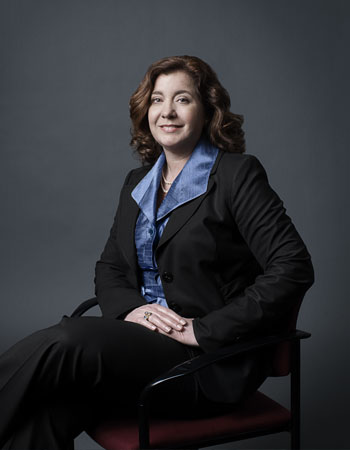Jan Eberly is back

The U.S. Treasury's chief economist returns to teach macroeconomic policy at Kellogg
By J. Alan Brennan | Photo by Eddie Quinones
In the midst of the country's worst financial crisis in decades, Jan Eberly, professor of finance, served two years as assistant secretary for economic policy and chief economist of the U.S. Department of the Treasury. There, she managed a team of 30 macro- and micro-economists, analyzing and advising on policies to address the key issues, including employment, healthcare, housing and education. Having recently returned to Kellogg, Eberly talks about lessons learned and how she plans to apply them to her research and in the classroom.
K:
What was the most interesting policy you worked on?
JE:
The policy world is pretty rich now. Following the financial crisis, there's been a lot of focus on the housing market. We've done a fair amount of work on large issues like refinancing and loan restructuring and loan modification programs to support the improvement in the market. All of it was very satisfying, and you could read the front page of The New York Times and see the issues we were working on. Then, there were other topics that weren't on the public radar but made a substantive difference for struggling homeowners.
K:
Do you have plans to do follow-up research on any policies you helped implement to see how they fare?
JE:
Yes, there's a number of cases — I think housing is a good example — where there had been research but the market changed so much that there are many new questions as well as old questions that need to be re-examined with new data. Having worked on it from a policy level, I would be interested to do research in that area. Also, credit policy is very interesting to me. Obviously, credit played a big role in the housing boom and housing collapse, but there are credit issues beyond housing as well, particularly in monetary and budget policy.
K:
Based on this experience, do you see a need for change in how we educate business leaders?
JE:
We shouldn't underestimate how important a role business leaders can have in economic issues. Many business leaders transcend their primary interest to have a conversation about the national interest and public policy issues. And when they do that, they can be very effective and help shape a conversation about the public good. So as we're training business leaders, I think preparing people to play that role and give them the tools to think about national economic issues is valuable to the student — but also a public service.


